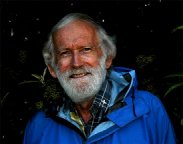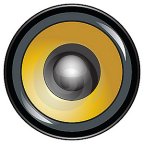.
NOTES ON EXTRACTS FROM INTERVIEWS
1. Date and Quality of Recordings.
All were recorded in December 1988 inside buildings where the sound
quality is reduced somewhat by the noise of the blowers of the forced-air
furnaces used to heat buildings in winter.
2. Glossary of Terms Used and Places Referred To.
-
The ‘Bay : Abbreviated term for Hudson’s Bay Company.
-
Country Foods : Those obtained by hunting (meat and fish etc.)
-
Fort Ross : Original fur trading post in this area. At southern end of
Somerset Island opposite head of Boothia Peninsula, 300 kms (in a straight
line) north of Spence Bay.
-
Honda : Brand-name of one form of all-terrain vehicle, now used to refer
to all such three and four-wheelers.
-
Inuit : People (name used by those once known as “Eskimos” to identify
themselves)
-
Inuk : Person
-
Inukshuk : Man-made pile of rocks serving as reference point in overland
navigation and/or (when in lines) to direct caribou into a trap (since
the piles, from a distance, looked a bit like men).
-
Inuktitut : The language of the Inuit
-
Iqaluit : Town on Baffin Island, formerly known as Frobisher bay, made
capital of the Nunavut Territory when this was established in 1999.
-
Kabloona : White Man or European
-
Kamik : A boot.
-
Kamik’s bottom : The sole of such a boot.
-
Kicker : Outboard motor.
-
Rankin Inlet : Town on the north-western side of Hudson’s Bay: and home
of the interviewee Nowyah.
-
Seal Blubber : Used in soapstone lamps for heating and cooking in the old
days; also as foodstuff.
-
Skidoo : Brand name of one form of motorised toboggan, now used as a general
term for all such snowmobiles.
-
Thom Bay : Early settlement (and site of seasonal hunting camps) 80 kms
northeast of Spence Bay.
3. Identities of Persons Interviewed:
Traditionally Inuit parents gave their children just one name. This
was often descriptive and was assigned not at birth but later when the
child’s personality was revealed. In recent times both federal and territorial
governments encouraged the adoption of surnames so they could keep track
of family groupings. As a result some men adopted Christian names and used
their original name to indicate their family. Others kept their original
names and invented a surname -- “Inuk” for example.
Alookee (alias Steve Alookee) is a well-known hunter but has
a range of interests – as church organist and preacher, stone carver, and
town councillor. He does not speak English, so his wife served as interpreter
when he was interviewed.
Mannilaq (alias John Mannilaq) hunted with dogs when he was young
but has a bad back and now hunts only part-time. He has a job in town at
the radio station and also helps with community events like the feast and
festival at Christmas.
Aiyout (alias Aiyout Inuk) having been involved in the fur trade
in the old days, and travelling great distances, is well able to compare
dogs with skidoos. He lost an arm in an accident but still hunts successfully.
Anaoyok (alias Anaoyok Alookee) was an award-winning designer
of clothing for both Inuit and Kabloona and managed a large workshop. Her
energies were later focussed on a family of six – three of them children
and three of them grandchildren but raised as her own. The sheepskins she
now uses for mitts and kamiks come from the store.
Nowyah (alias Nowyah Williams) is a trained nurse but when interviewed
was heavily involved in church-work, assisting her husband as a translator
for some of his sermons, and also preaching and teaching herself.
Alex Buchan managed the Hudson’s Bay Company’s department store
in Spence but had experience also of the fur trade era, witnessing significant
changes in employment, transport and diet.
Shirley Barnes managed the nursing station. In the absence of
any doctor in Spence Bay she functioned a nurse practitioner – a role she
had previously fulfilled in Papua New Guinea, Southeast Asia and West Africa,
Paul Williams was the Anglican priest in Spence Bay, the husband
of Nowyah, and the father of two children. He was also responsible for
the church in Gjoa Haven on King William Island 150 kms to the southwest.
George Sutherland was the official representative of the government
of the Northwest Territories and administrator of government programmes.
Jacques Slik was principal of the school in Spence Bay, and with
experience of a rage of indigenous school communities had reflected at
length on the impact of schooling on traditional lifestyles.





![]()

![]()